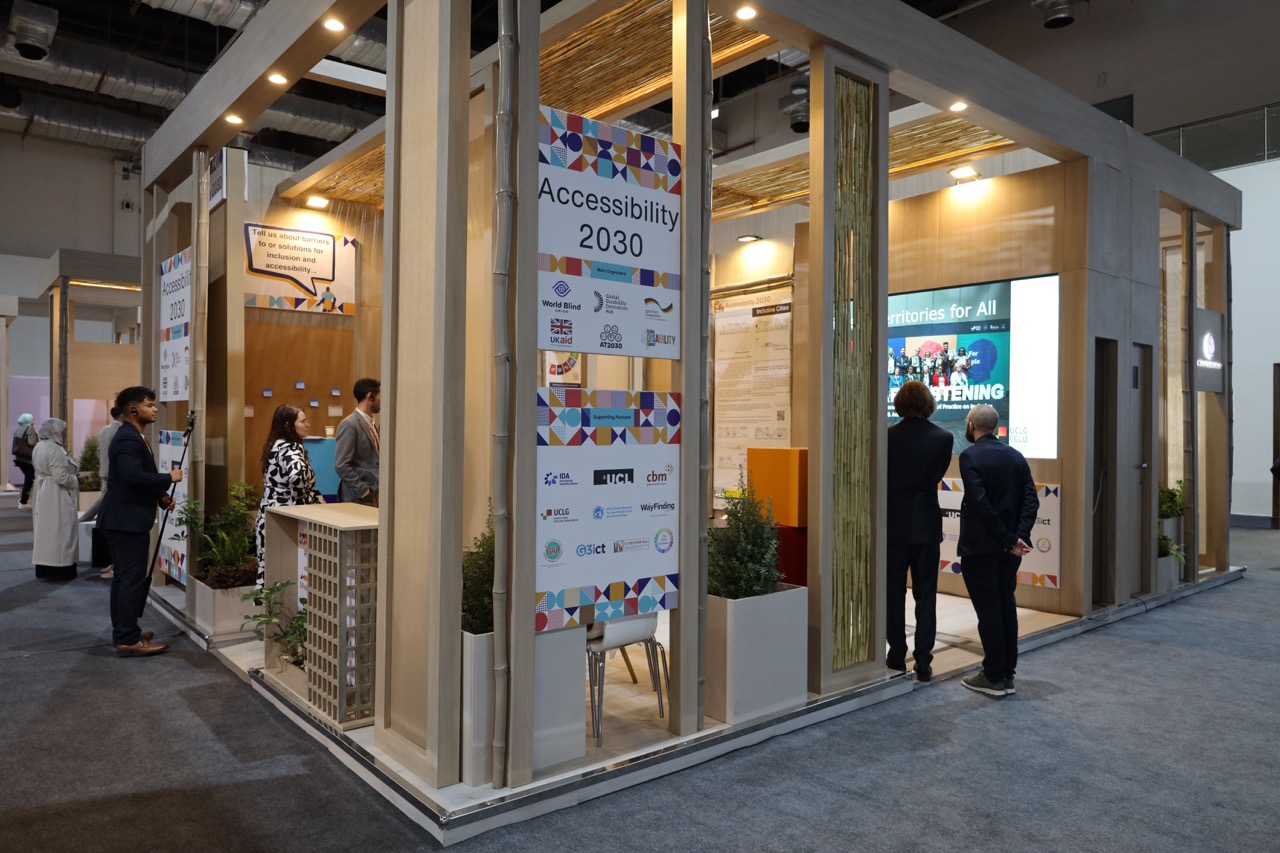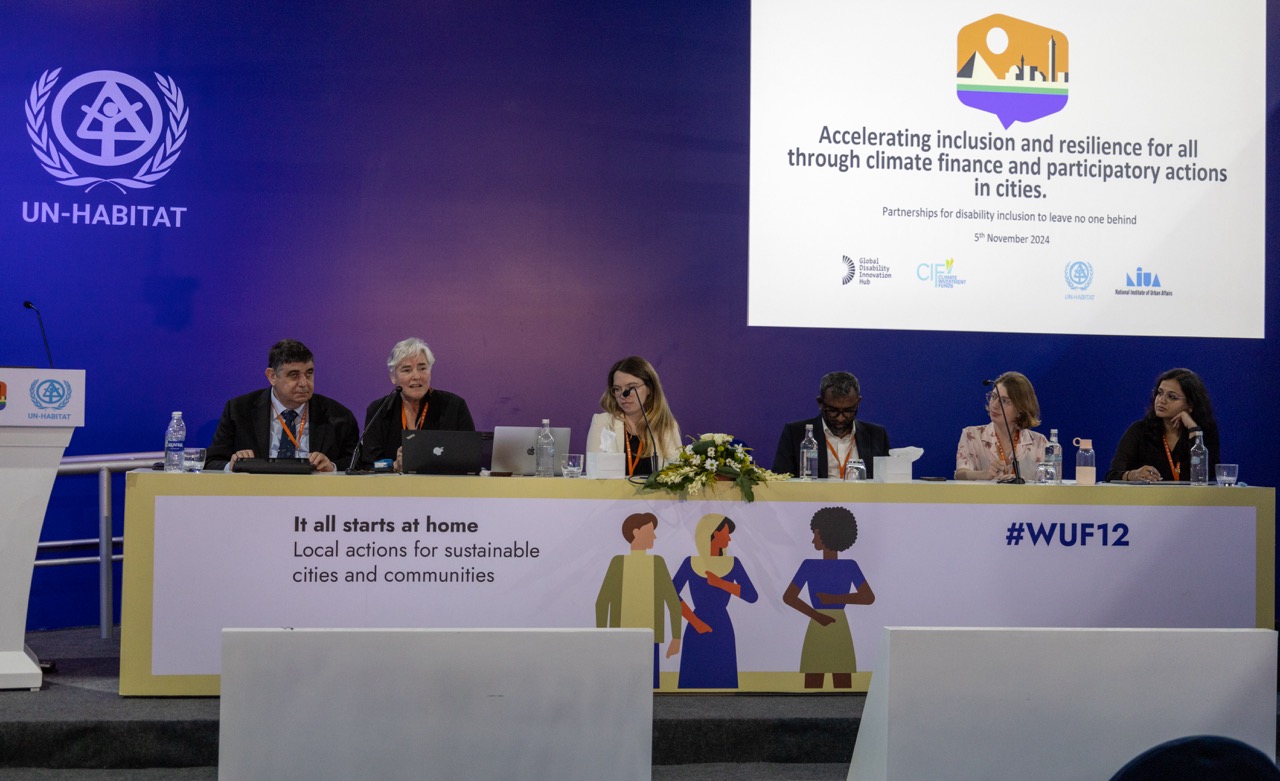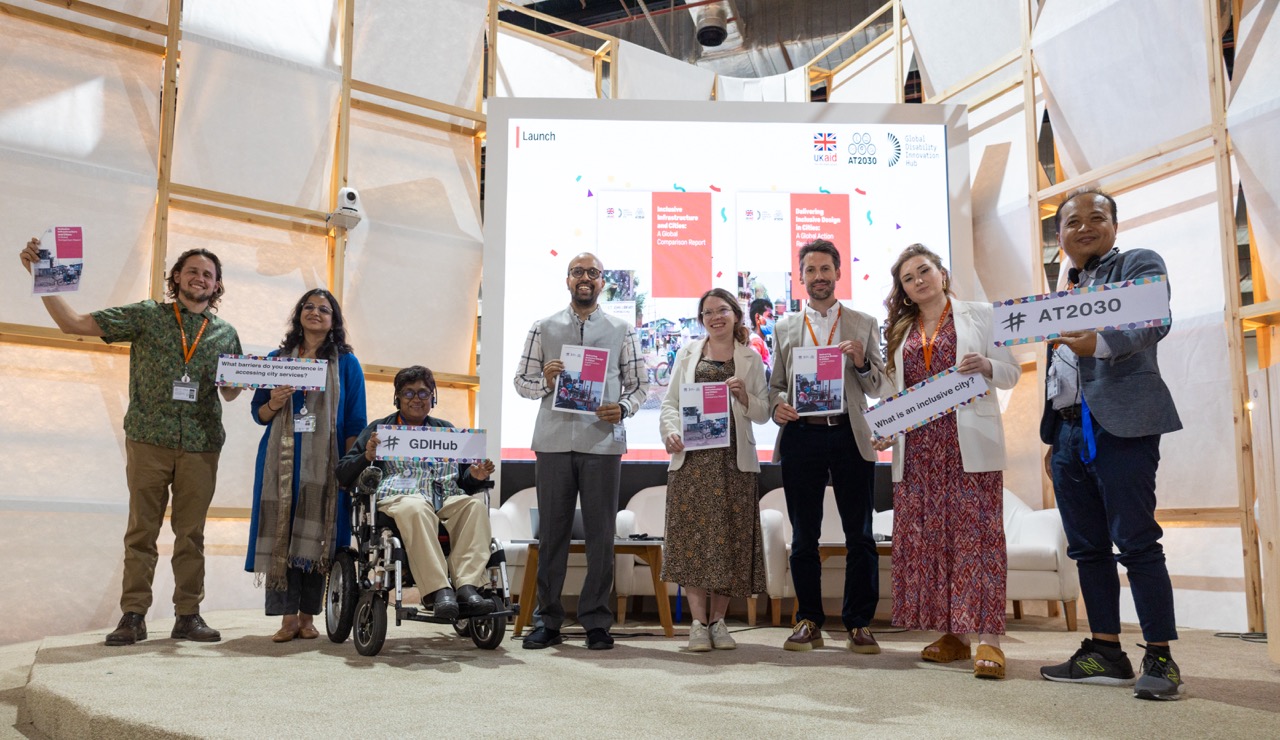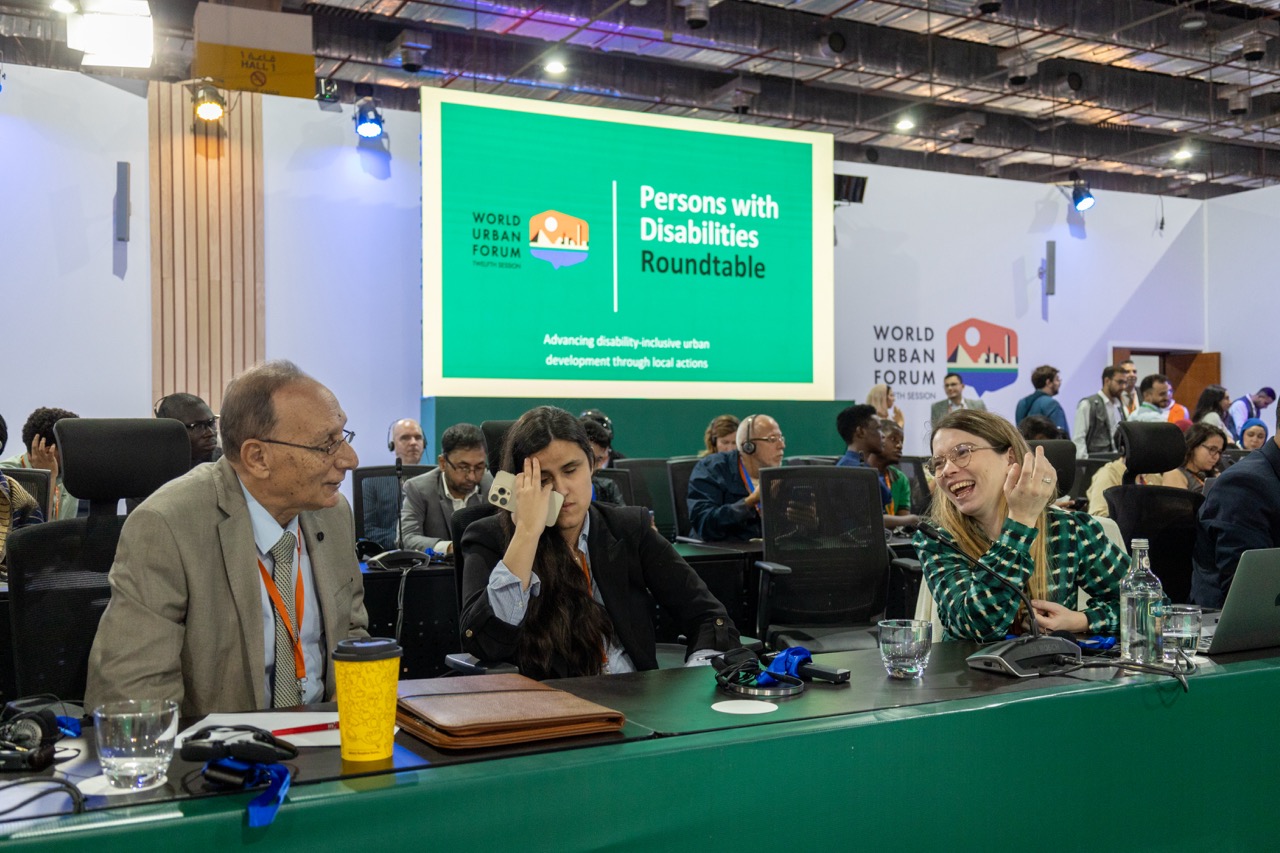GDIHub at the World Urban Forum
In November 2024, the Global Disability Innovation Hub (GDI Hub) joined the global community at the World Urban Forum (WUF12) in Cairo, Egypt, contributing to the global dialogue on inclusive and accessible urban development.

An important piece of the forum was the Accessibility 2030 Pavilion, the first of its kind at WUF, entirely dedicated to building inclusive cities. This innovative space, hosted by GDI Hub in partnership with the World Blind Union, the German Federal Ministry of Economic Cooperation and Development, and the Global Disability Summit, served as a vibrant hub for discussion, learning, and collaboration.
The pavilion brought together urban planners, policymakers, advocates, and community leaders to explore how accessibility can drive sustainable urban development. Through dynamic workshops, engaging panels, and thought-provoking discussions, participants addressed challenges, shared solutions, and envisioned cities that empower everyone. Alongside the pavilion’s main events, side sessions hosted by partners created opportunities for connection, exchange, and collaboration, fostering an ecosystem of inclusive innovation.
As part of its WUF12 engagement, GDI Hub led two critical sessions showcasing strategies and tools for advancing disability inclusion and climate resilience in urban settings.

The first session, “Accelerating Inclusion and Resilience for All Through Climate Finance,” took place on November 5, 2024. This event, co-hosted with Climate Investment Funds (CIF), CBM Global, and UN-Habitat, explored how climate finance can support inclusive urban development. Key discussions included CIF’s new background note on Disability Inclusion in Climate Finance, which outlines strategies for integrating disability perspectives into climate investments.
The interactive roundtable allowed participants to delve into themes such as urban design, energy access, data monitoring, and community participation, with contributions from organizations like Kota Kita, Kounkuey Design Initiative, and the World Blind Union.

The second session, “Delivering Inclusive Cities Through Practical Action,” was held on November 7, 2024, and marked the launch of two significant reports: the Global Action Report on Inclusive Design and Infrastructure in Cities and the Global Comparison Report on the State of Inclusive Infrastructure in Cities. Drawing from four years of research across cities like Nairobi, Medellín, and Varanasi, the reports offer practical guidance for embedding accessibility in urban planning.
City representatives shared insights from their local contexts, highlighting how inclusive infrastructure contributes to achieving Sustainable Development Goal 11 and the New Urban Agenda. The session ended with a powerful call to action for local and global stakeholders to support ongoing pilot projects and champion inclusive urban design.
Persons with Disabilities Roundtable:

On the sidelines of the forum, GDI Hub participated in the Persons with Disabilities Roundtable, with CEO Iain McKinnon and Head of Inclusive Infrastructure and Climate Mikaela Patrick leading discussions. This roundtable served as a collaborative platform for national and local governments, organizations of persons with disabilities, NGOs, UN agencies, and international financial institutions to explore disability-inclusive development through local actions.
The discussions focused on promoting accessibility to ensure autonomy, choice, and control for persons with disabilities while sharing strategies and tools for translating global agendas into local initiatives.
Speaking at the event, our CEO, Iain McKinnon emphasized the importance of moving from knowledge to action:
“I want to see more positive change happening on the ground. We know it’s important; the knowledge of what we need to do exists. Solet’s see more examples. At GDI Hub, we’ve done four years of research on inclusive cities. We are launching our Global Action Report here tomorrow, and our next phase is to test this through pilot studies with cities. We aim to drive real change that positively impacts persons with disabilities worldwide.”
The roundtable underscored the critical role of multi-stakeholder approaches in ensuring no one and no place is left behind in the journey toward inclusive urban development.
As demonstrated at WUF12, inclusive and climate-resilient urban planning is not only essential for sustainable development but also a transformative force for addressing global challenges. Through the Accessibility 2030 Pavilion, GDI Hub has reaffirmed its commitment to creating cities that are inclusive, accessible, and empowering for all.